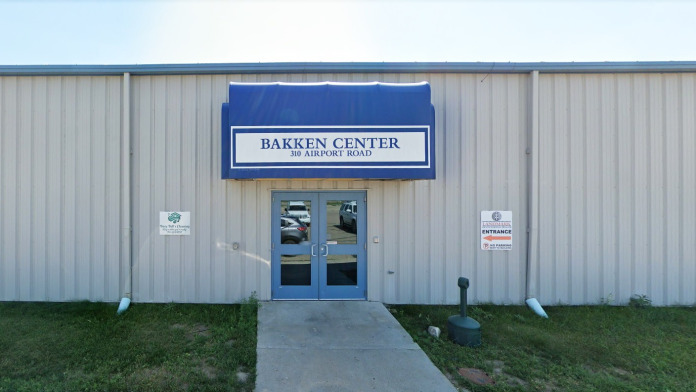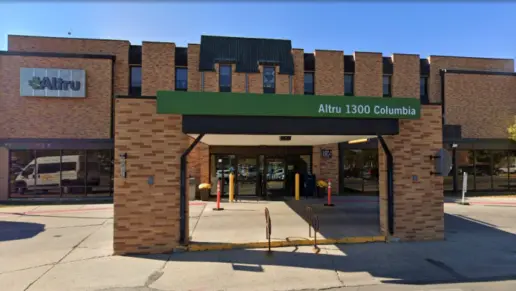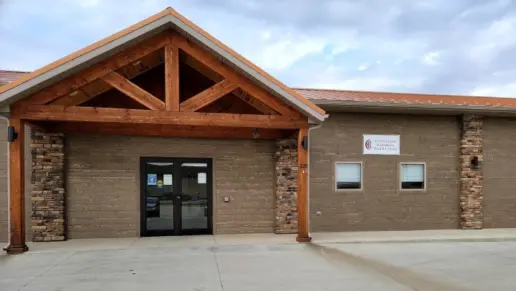No one is answered the phone, unhelpful staff.
About ADAPT – Airport Road
ADAPT - Airport Road offers outpatient treatment for individuals with alcohol and/or substance addiction. The program includes anger management, relapse prevention, family therapy and more. ADAPT - Airport Road is located at Williston, North Dakota.
ADAPT – Airport Road focuses on the practice and acquisition of skills so that each individual has the opportunity to bring about positive change in their lifestyle.
Drug /Alcohol Addiction Services include: Licensed Addiction Counseling, DUI/Drug/Alcohol Evaluations, WebEx Internet Addiction Services, Outpatient Treatment Services, Aftercare Services, DUI Seminars, Minor In Possession Classes, Tobacco Prevention Classes, Drug Screenings, Substance Abuse Prevention, and other related services.
Mental Health Services include: Vocational Counseling, Anger Management, Domestic Violence, Family and Individual Therapy, Relapse Prevention, and other Group and Individualized Programs.
Alcohol/Drug Testing Services with Certified Lab Results include: Drug Patch, Urine Testing, Saliva Swab, and Paternity Testing.
ADAPT – Airport Road also provides WebEx Internet Addiction Services, which is confidential and HIPAA approved. They have the ability to conduct Evaluations, treatment, group classes and individual counseling from other counselors from other locations around the state over the approved confidential internet site.
Rehab Score
Gallery

Location
Other Forms of Payment
Self-pay involves paying for treatment out of your own pocket. You can use savings or credit, get a personal loan, or receive help from family and friends to fund your treatment. If you don't have insurance or your insurance plan doesn't cover a specific program, self-pay can help ensure you still get the care you need.
Private insurance refers to any kind of healthcare coverage that isn't from the state or federal government. This includes individual and family plans offered by an employer or purchased from the Insurance Marketplace. Every plan will have different requirements and out of pocket costs so be sure to get the full details before you start treatment.
Addiction Treatments
Levels of Care
Treatments
The goal of treatment for alcoholism is abstinence. Those with poor social support, poor motivation, or psychiatric disorders tend to relapse within a few years of treatment. For these people, success is measured by longer periods of abstinence, reduced use of alcohol, better health, and improved social functioning. Recovery and Maintenance are usually based on 12 step programs and AA meetings.
The goal of drug rehab in North Dakota is to help individuals overcome addiction. These programs provide treatment for both mind and body and teach participants how to live healthy, productive lives without drug abuse.
A combined mental health and substance abuse rehab has the staff and resources available to handle individuals with both mental health and substance abuse issues. It can be challenging to determine where a specific symptom stems from (a mental health issue or an issue related to substance abuse), so mental health and substance abuse professionals are helpful in detangling symptoms and keeping treatment on track.
Opioid rehabs specialize in supporting those recovering from opioid addiction. They treat those suffering from addiction to illegal opioids like heroin, as well as prescription drugs like oxycodone. These centers typically combine both physical as well as mental and emotional support to help stop addiction. Physical support often includes medical detox and subsequent medical support (including medication), and mental support includes in-depth therapy to address the underlying causes of addiction.
Programs


Clinical Services
Research clearly demonstrates that recovery is far more successful and sustainable when loved ones like family members participate in rehab and substance abuse treatment. Genetic factors may be at play when it comes to drug and alcohol addiction, as well as mental health issues. Family dynamics often play a critical role in addiction triggers, and if properly educated, family members can be a strong source of support when it comes to rehabilitation.
Group therapy is any therapeutic work that happens in a group (not one-on-one). There are a number of different group therapy modalities, including support groups, experiential therapy, psycho-education, and more. Group therapy involves treatment as well as processing interaction between group members.
In individual therapy, a patient meets one-on-one with a trained psychologist or counselor. Therapy is a pivotal part of effective substance abuse treatment, as it often covers root causes of addiction, including challenges faced by the patient in their social, family, and work/school life.
Contact Information
310 Airport Road
Suite # 150
Williston, ND 58801


